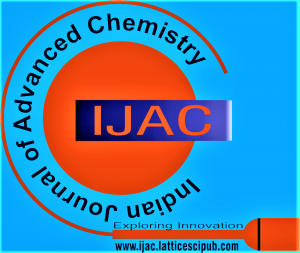![]()
Investigation of Doubling Heat Capacity of Storage Fluids through Nanomaterials
E.N. Ganesh
Dr. E.N. Ganesh, Dean, Department of Electronics & Communication Engineering, Vels University, Chennai (Tamil Nadu), India.
Manuscript received on 04 March 2022 | Revised Manuscript received on 25 March 2022 | Manuscript Accepted on 15 April 2022 | Manuscript published on 30 April 2022 | PP: 1-4 | Volume-2 Issue-1, April 2022 | Retrieval Number: 100.1/ijac.B2011101221 | DOI: 10.54105/ijac.B2011.041322
Open Access | Ethics and Policies | Cite | Mendeley | Indexing and Abstracting
© The Authors. Published by Lattice Science Publication (LSP). This is an open access article under the CC-BY-NC-ND license (http://creativecommons.org/licenses/by-nc-nd/4.0/)
Abstract: Nanoparticles are typically composed of 50–500 atoms and exhibit properties that are significantly different from the properties of larger, macroscale particles that have the same composition. The addition of these particles to traditional fluids may improve the fluids’ thermophysical properties. As an example, the addition of a nanoparticle or set of nanoparticles to a storage fluid may double its heat capacity. This increase in heat capacity would allow a sensible thermal energy storage system to store the same amount of thermal energy in half the amount of storage fluid. The benefit is lower costs for the storage fluid and the storage tanks, resulting in lower-cost electricity. The goal of this long-term research is to create a new class of fluids that enable concentrating solar power plants to operate with greater efficiency and lower electricity costs. Initial research on this topic developed molecular dynamic models that predicted the energy states and transition temperatures for these particles. Recent research has extended the modeling work, along with initiating the synthesis and characterization of bare metal nanoparticles and metal nanoparticles that are encapsulated with inert silica coatings. These particles possess properties that make them excellent candidates for enhancing the heat capacity of storage fluids.
Keywords: Nanofluids, Nanoclusters, Heat Capacity, Molecular Dynamics Modeling, Chemical Synthesis.
Scope of the Article: Chemical Engineering
